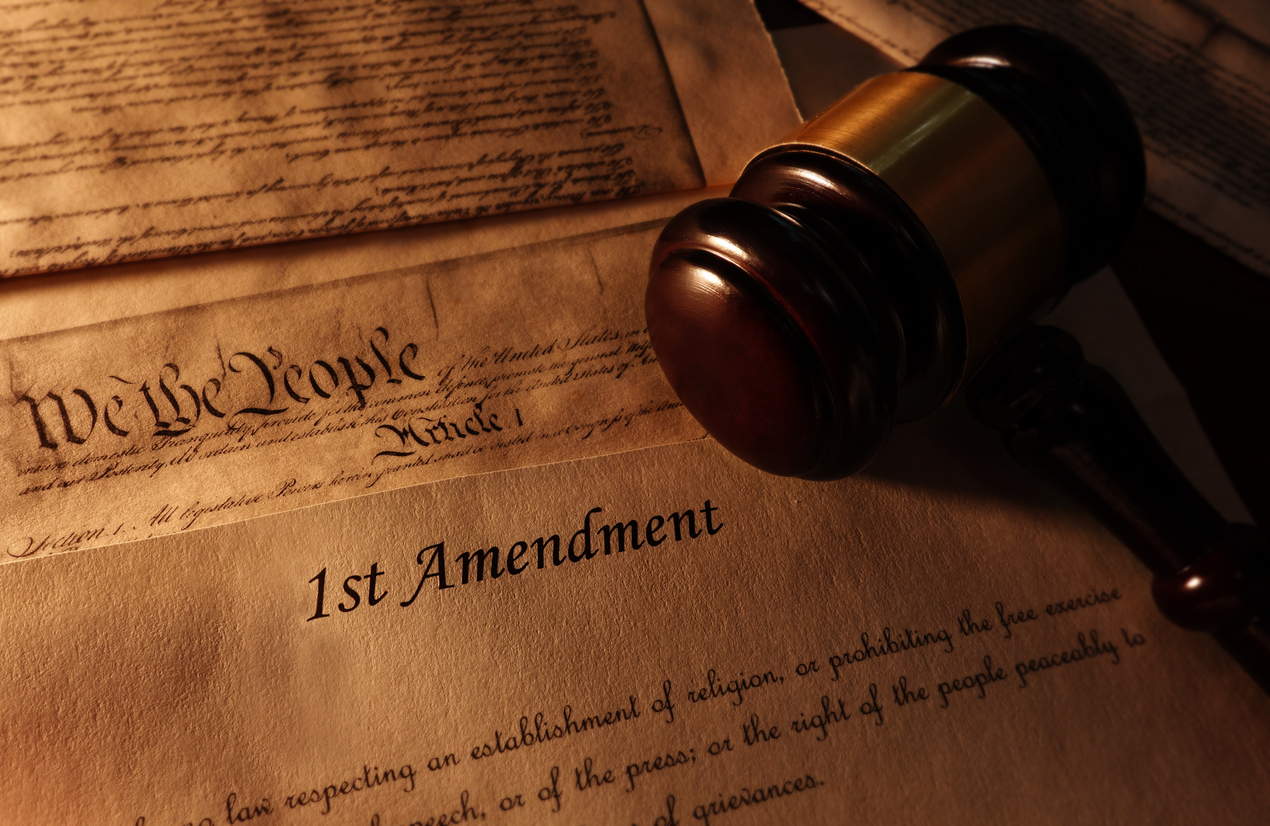In Mahmoud, Parents Must be Recognized as the Primary Formators of Their Children
By Darius Iraj
Last month, the United States Supreme Court heard oral argument in Mahmoud v. Taylor. Mahmoud addresses a critical question: whether parents of children attending public schools have the right to opt their children out of instruction on gender and sexuality pursuant to the parents’ religious and parental rights. The oral argument in the case covered many critical issues, ranging from the proper definition of a “burden” on religious freedom to the administrability of these opt outs. But to correctly understand these issues, one must first frame them through a proper understanding of the tradition of parents’ rights to direct their children’s religious upbringing—and how that right interacts with the public school system.
Much was made by the school district’s counsel about the alleged chaos that would ensue if schools respected the opt-out rights of parents. But this argument overlooked something fundamental: the primacy of the parents’ role in the education—particularly the religious education—of their children. While many parents today seem to abdicate their responsibility to educate their children and think of education as primarily the duty of the school system, that attitude has the relationship between parents and schools backwards. In a rightly ordered relationship between parents and schools, parents maintain the primary responsibility to educate their children. They have the right to delegate a portion of their role to the school system, but the extent of the rights of the school system should depend on the scope of the parent’s delegated permission. In other words, “the state’s responsibility for children’s well-being is a subsidiary one which ought to be carried out in a subsidiary way[,] i.e., by assisting parents to discharge their obligations.”1.
And these parental rights are not intended to enhance the power of parents at the neglect of children’s needs and development. Rather, the right reflects the reality “that natural bonds of affection lead parents to act in the best interests of their children.” 2 Thus, parental rights are not primarily about the power of parents but the well-being of children. These rights bolster the children’s chances of meaningfully exercising their liberties later in life because parents are in the best position to form and educate their children.3
So the right of public schools to educate children comes properly from the permission granted to schools by parents. This was the understanding of parental rights at the American Founding: Parents had control over what their children consumed—even in schools.4 It was the duty of parents to educate their children and protect them from corrupt ideas and to protect their development, especially by controlling what children read. “[This] concept of total parental control over children’s lives extended into schools.” 5 That delegation of authority came to be known as in loco parentis, wherein “teachers assumed the sacred duty of parents … to train up and qualify their children.”6 So the schoolteacher’s authority was utterly dependent on what parents consented to.7 Accordingly, parents and local community leaders watched these schoolteachers “with the most scrupulous attention.”8 Even in schools, children were not “mere creature[s] of the state” and could not be “force[d] to accept instruction from public teachers only.”9
How this will play out in Mahmoud is a complicated question, but it clearly puts a much greater burden on the state to prove a truly compelling interest to regulate these parental liberties. A proper understanding of the contours of the constitutional right and its history certainly will have implications for assessing when the constitutional rights at stake are legally burdened and when courts should be willing to defer to the state’s asserted interests. Here, the concern of the school district’s counsel about the school board’s ability to provide an alternate space for students pales in comparison to the need for parents to educate their children in accordance with their religious values and protect them from corrupting ideas on its face. Religious freedom is “essential,”10 with an added “specific bite” stemming from the interaction of religious freedom with parental rights.11 The speculative concern that it would be too difficult to provide alternative spaces because a decision in favor of the parents would lead to a slew of opt outs cannot justify violating essential constitutional freedoms.12
Justice Alito, meanwhile, summarizes the Montgomery County School Board’s message to parents as saying, “[w]ell, it’s too bad, all right? This is the public school and the public school can teach what the public school wants.”13 The school district’s counsel countered by saying that “[t]he School Board here is democratically elected” and that there is plenty of opportunity for “parental insight” into the process for selecting books for instruction.14 But that is not enough to avoid violating sacred constitutional rights. Constitutional rights are not subject to the whims of democratic majorities—in many ways, preventing the tyranny of the majority is why rights are enshrined into the Constitution in the first place.
The School Board’s vague and speculative concerns do not amount to a compelling interest that can meet the requirements of strict scrutiny in this context. The First Amendment fittingly “demands a more precise analysis” for a reason; the First Amendment is of paramount importance.15 And—as the parents write in their opening brief—“the Board must explain how the withdrawal serves a compelling interest historically sufficient to justify the resulting interference with the ‘enduring American tradition’ of parental direction in religious upbringing.”16 As the Court explained in Yoder, the showing required by the state is assessed “against the background” of the tradition of the right.17 And that tradition of deference to parental decision making at issue here—especially in the realm of religious values and in light of the Free Exercise Clause of the First Amendment—is significant.
In short, here young children were exposed to ideas in LGBTQ Pride storybooks that were inherently coercive and biased against the religious beliefs of parents— parents who possess the right and responsibility to form the character and religious values of their children. Under no circumstances would the school board’s assault on parental and religious rights have been tolerated at the Founding and so neither should it be tolerated today.
---------------------------------
1Ryan Bangert, Parental Rights in the Age of Gender Ideology, 27 TEX. REV. L. & POL. 715, 719 (2023) (cleaned up)
2Parham v. J.R., 442 U.S. 584, 602 (1970).
3See Bellotti v. Baird, 443 U.S. 622, 638-39 (1979) (“Legal restrictions on minors, especially those supportive of the parental role, may be important to the child’s chances for the full growth and maturity that make eventual participation in a free society meaningful and rewarding.”).
4See Brown v. Ent. Merchs. Ass’n, 564 U.S. 786, 825 (2011) (Thomas, J. dissenting)
5Id. at 830.
6Id. (cleaned up).
7Mahanoy Area Sch. Dist. v. B.L. ex rel. Levy, 594 U.S. 180, 198-99 (2021) (Alito, J., concurring).
8Brown, 564 U.S. at 830, (Thomas, J., dissenting).
9Pierce v. Soc’y of Sisters, 268 U.S. 510, 535 (1925).
10Church of the Lukumi Babalu Aye, Inc. v. City of Hialeah, 508 U.S. 520, 524 (1993)
11Michael E. Lechliter, The Free Exercise of Religion and Public Schools: The Implications of Hybrid Rights on the Religious Upbringing of Children, 103 MICH. L. REV. 2209, 2215 (2005).
12Transcript of Oral Argument at 148, Mahmoud v. Taylor, No. 24-297 (U.S. Apr. 22, 2025).
13Transcript of Oral Argument, supra, at 137.
14Id. at 139.
15Fulton v. City of Philadelphia, 593 U.S. 522, 541 (2021).
16Brief for Petitioner at 47, Mahmoud v. Taylor, 24-297 (U.S. Mar. 2025) (quoting Wisconsin v. Yoder, 406 U.S. 205, 226-27, 232 (1972)).
17Yoder, 406 U.S. at 226-27.
.png)




